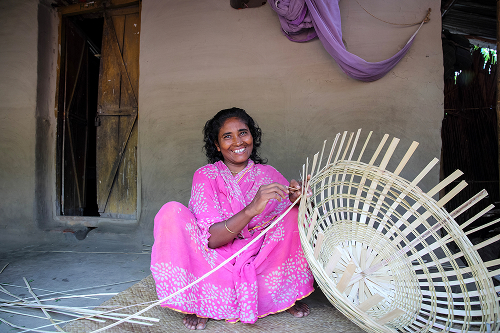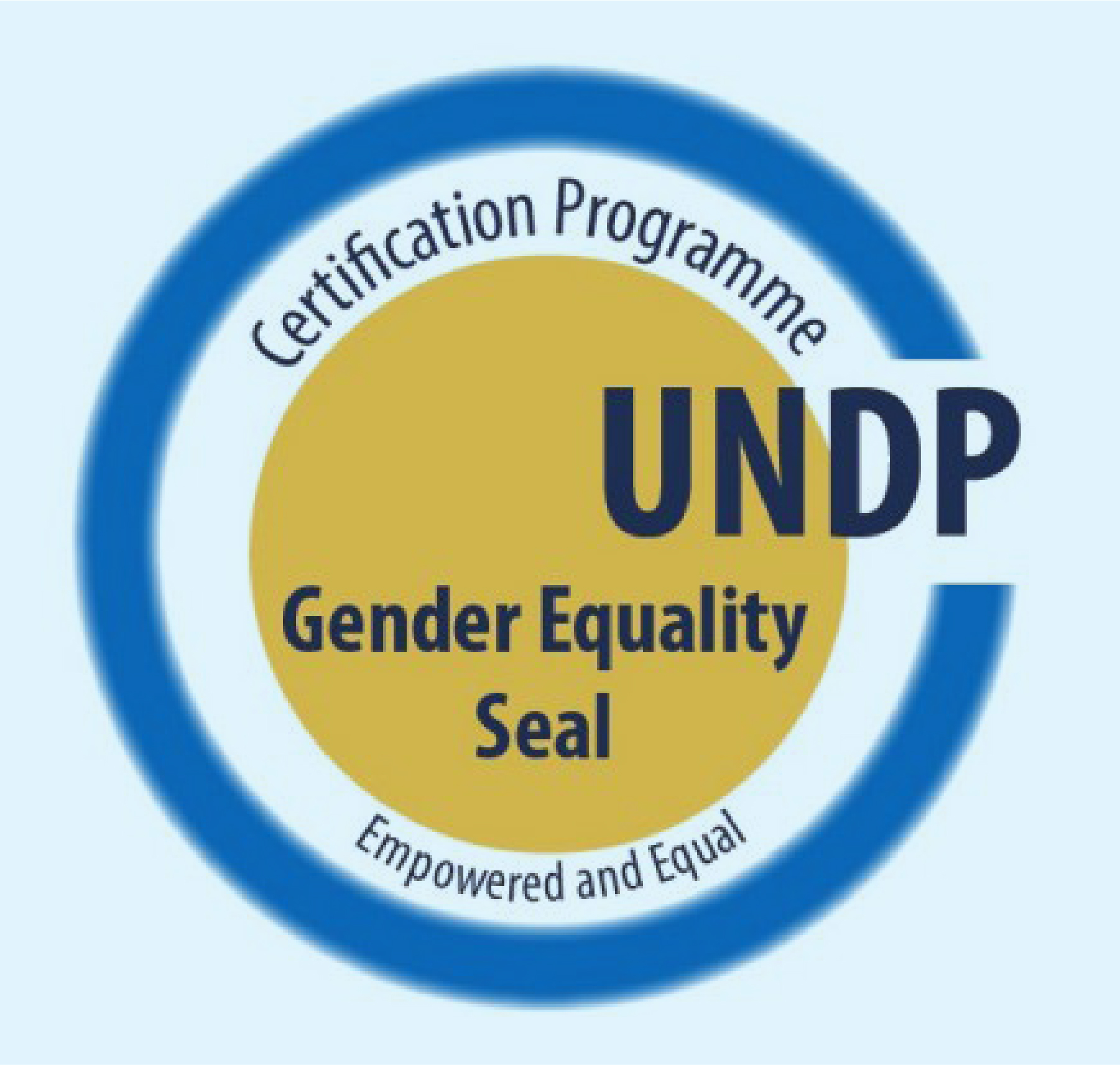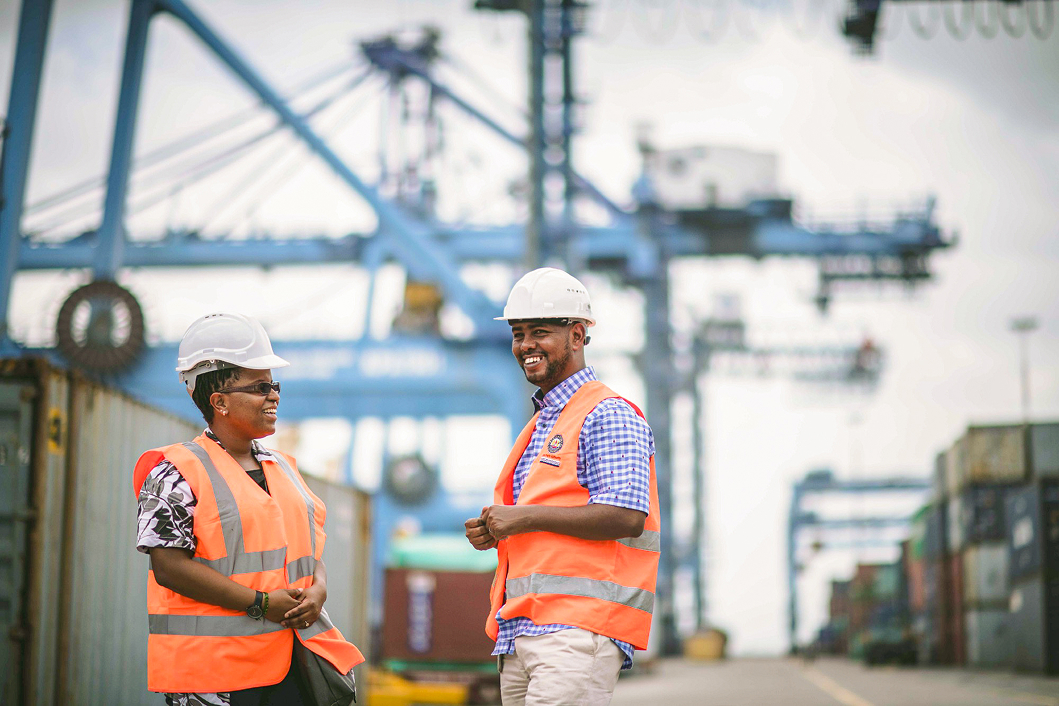In line with the Fourth International Conference on Financing for Development (FFD4) hosted by Spain in summer 2025, UNDP is leading an expanded agenda for change, involving governments, development and finance institutions in reforming the global sustainable finance architecture. This includes supporting the issuance of SDG-aligned bonds, channeling taxation to SDG investments, building bankable pipelines of SDG-linked projects (and measuring their impacts), and reducing the risk of SDG investments.
By using our expertise and funds to leverage financing for sustainable development – and advocating for our partners to do the same – UNDP is reshaping both the global development and financing landscapes. Through the G20 Sustainable Finance Working Group, the Task Force on Inequality and Social-related Financial Disclosures, and other global partnerships, we are working to solve some of the toughest challenges the world is facing right now.
UNDP’s partnerships with financial institutions play a vital role that goes beyond financing. Besides collaborating with investors and insurers to de-risk investments in developing economies, UNDP and financial institutions work closely together to strengthen policy frameworks, provide technical advisory services, build institutional capacity, and create enabling environments for sustainable investment.
In addition to development finance institutions, UNDP works with commercial banks, institutional investors, the insurance industry, funds and regulators.
Partnerships for national financing strategies
International financial institutions are increasingly active in the effort to develop and implement national financing strategies. For example:
In Cabo Verde, UNDP has partnered with the European Union on the development of a national Open Data Portal. Capturing information on public budgets, revenue and debt, the portal will be used to align public spending with national sustainability targets, and ensure transparency of public-sector finance. The International Monetary Fund (IMF) provided support for drafting the legal framework.
With support from the IMF, UNDP is partnering with the United Nations Environment Programme and the United Nations Economic Commission for Africa to assist Gabon in its transition to a green economy. Combining UNDP’s experience in climate action and the IMF’s expertise in macroeconomic framework analysis, this partnership could become a model for the other countries.
The Addis Ababa Action Agenda committed United Nations Member States to enhance global economic governance towards a more inclusive and accessible international architecture for sustainable development. This agenda is built on the foundation of nationally owned sustainable development strategies, supported by integrated national financing frameworks.
These frameworks enable countries to strengthen financial planning and strategies for mobilizing both public and private finance. The bedrock of country-led efforts to finance their sustainable development, 86 countries are currently using this approach and more than 50 are implementing financing policy reforms shaped by their integrated national financing frameworks.
The 86 countries
using the approach have:
leveraged
$16 billion
in new financing; and
aligned an additional
$32 billion
with the SDGs.
Partnership with the United Nations Capital Development Fund (UNCDF)
UNDP and UNCDF work hand in hand to drive sustainable development by addressing policy and financial barriers that hinder investment in critical sectors.
While UNDP leads on de-risking sustainable investments, UNCDF deploys financial de-risking and blended finance solutions, leveraging its capital – including performance-based payments, guarantees, and catalytic capital – to unlock public and private investments in high-impact initiatives.
Together, UNDP and UNCDF bridge the gap between policy ambition and investment for developing countries, building a more inclusive global finance ecosystem that drives investment in line with the SDGs, climate and biodiversity targets.

Integrated national financing frameworks move countries from crisis to long-term stability
Moving from crisis and fragility to resilience and sustainable development requires the ability to cope with immediate shocks while transforming structural inequalities that exacerbate instability. As of December 2024, more than 50 crisis or post-crisis countries had embarked on the integrated national financing framework process. For example, in Ethiopia, the Government used this process to identify challenges that could be turned into investment opportunities. This in turn raised financing partners’ awareness of opportunities for long-term investment beyond immediate humanitarian assistance – building resilience, peace and prosperity.
Private finance is essential to closing the $4.3 trillion annual SDG financing gap. Yet mobilizing capital to meet sustainability targets requires more than just investment. It demands structural shifts in financial markets, innovative solutions, and stronger partnerships to ensure private capital delivers both financial returns and measurable sustainable development impact.
The private sector is a key driver of change. UNDP is helping to realize the vast potential of private finance for the SDGs by:
Leveraging and developing investment-ready opportunities aligned with the SDGs, facilitating the attraction of private capital;
Ensuring investments deliver both financial returns and positive social and environmental outcomes; and
Reducing barriers and risks for investors by strengthening policy frameworks for sustainable investments.
In its work across 170 countries, UNDP helps investors, businesses and policymakers align capital with the SDGs, remove barriers to investment, and create scalable financial solutions. Through market intelligence, investment facilitation, policy alignment, and impact assurance, UNDP is ensuring that private finance drives real, lasting change where it is needed most.
Leveraging private finance for the SDGs
To promote private investment in the SDGs and other sustainability targets, UNDP provides investment intelligence and market insights, and connects investors with SDG-aligned investment opportunities. The SDG Investor Platform offers data-driven investment intelligence across 47 countries, helping investors identify market opportunities that generate both financial returns and measurable impact. As of 2024, 697 investment opportunity areas had been mapped – 207 in sub-Saharan Africa alone.
In addition to mapping opportunities, UNDP is driving real investments on the ground. The Pipeline Builder initiative, which has already leveraged $15 million for SDG-aligned businesses in Nigeria, is now being scaled across Africa to connect private investors with impact-driven enterprises.
Aligning Private Finance with the SDGs
Beyond mobilizing capital, UNDP ensures that private investments are aligned with the SDGs by providing practical tools and global standards that guide businesses and investors toward sustainable decision making.
The SDG Impact Standards serve as a best practice framework for integrating sustainability and impact measurement across private equity funds, enterprises and bond issuers, helping financial actors align their strategies with global development goals.
In 2024, UNDP and the International Organization for Standardization (ISO) launched the ISO/UNDP Guidelines for the SDGs, establishing a global benchmark for integrating sustainability into corporate strategies. Building on this, UNDP and ISO are developing the first-ever Management Systems Standard for the SDGs, providing a globally recognized approach to embedding the SDGs into corporate governance, risk management, and investment decision making.
Partnering with the private sector to drive investments in sustainability
UNDP partnered with Thailand’s Securities and Exchange Commission (SEC) to align the business practices of companies listed on Thailand’s stock exchange – a total market capitalization of approximately $559.2 billion (2024) – with the SDGs. Building on UNDP’s SDG Impact Standards, the SEC issued a streamlined system for reporting on companies’ sustainability impacts.
UNDP also joined forces with Mizuho Financial Group to expand sustainable financing solutions, including blended finance, that address developing economies’ most pressing social and environmental challenges. These solutions contribute to Mizuho’s target of raising $700 billion in sustainable finance by 2030.
Strengthening business integrity and financial accountability
For private finance to be truly sustainable, strong business integrity and accountability frameworks must be in place. UNDP’s Business and Human Rights initiative ensures that private-sector engagement in sustainable finance is responsible, equitable and inclusive, working with governments and corporations to uphold ethical business practices. The UNDP-hosted Finance Against Slavery and Trafficking (FAST) initiative works with global financial institutions to eliminate modern slavery.
Scaling blended finance
To bridge financing gaps in high-impact sectors, UNDP is scaling blended finance solutions that reduce risk and attract private capital to climate, biodiversity, and sustainable energy initiatives. With support from Italy, the Platform for Investment Support and Technical Assistance (PISTA) aims to unlock $500 million in blended finance for decarbonization and climate resilience.
UNDP has also entered into a partnership with the Italian development bank Cassa Depositi e Prestiti to unlock innovative financing solutions for climate action and other SDGs.
Through the Biodiversity Finance Initiative (BIOFIN) in 40 countries, UNDP is advancing nature-positive finance, mobilizing public and private capital for conservation and nature-based solutions. UNDP’s sustainable energy portfolio, which includes 330 clean energy projects in 118 countries, is reducing investment barriers in renewables, energy access, and climate adaptation, making clean power more accessible and affordable in emerging markets.
North Macedonia: Working with partners to provide capital for green enterprises
Access to financing is one of the major challenges for small enterprises. Together with the European Bank for Reconstruction and Development, the International Organization on Migration, and the United Nations Economic Commission for Europe, UNDP established the Green Financing Facility, offering loans to small enterprises for investments in renewable energy. With an initial grant of $7.8 million, the facility is expected to leverage $38.7 million in private finance – a five-to-one ratio for every dollar invested.
Domestic revenue mobilization is fundamental for enabling investments in health, education, and other development priorities – strengthening the social contract and building trust between citizens and governments. To reach the SDGs, developing countries need to mobilize financing through taxation reform, public budget reform, managing risks related to SDG investment, and issuing debt sustainably.
UNDP works with national governments in nearly 100 countries to put sustainable development at the centre of public finance – increasing public financing for SDG targets, including climate action, while creating an enabling environment for private investment in sustainable development. This support has led to more than $2 billion in additional tax revenue collected and $30 billion in bond issuances linked to sustainability targets.
Through its Climate Promise initiative, UNDP works with countries to reduce greenhouse gas emissions, including carbon pricing instruments that both bring in revenue and drive climate action. With partners such as the World Bank and the African Development Bank, UNDP has supported 15 countries across five regions with carbon pricing and carbon market frameworks – helping them to make good on their Paris Agreement commitments to halt the global climate rise to pre-industrial levels.
In addition, UNDP’s ‘Equanomics’ initiative works to dismantle economic structures that generate and perpetuate gender inequality. This initiative was active in 20 countries in 2024 and aims to reach at least 30 countries by 2027 – shaping tax policies and public expenditures aimed at fostering gender equality.
Commitment to gender equality inspires trust in public institutions
The Gender Equality Seal is an internationally recognized certification demonstrating that institutions are putting gender equality commitments into practice. In the Dominican Republic, UNDP has been working with government ministries to integrate gender into core public policy and private sector decision-making processes, creating more gender-equal policies and inclusive investment initiatives. These efforts have raised awareness nationwide of gender-based inequalities and led to a significant increase in public procurement contracts awarded to women-led enterprises.

Taxation
The Tax for SDGs initiative has supported 25 developing country governments in raising revenues and aligning tax policies with the SDGs. SDG taxation frameworks have been implemented in more than 20 countries, driving policy changes that align taxation with health, gender equality, climate and good governance.
From support with implementing health taxes in Zimbabwe to advancing carbon taxation in Egypt, Tax for SDGs is helping countries to build more efficient, transparent taxation systems aligned with the SDGs. Taxation reform also provides a powerful incentive for investments in SDG 5 on gender equality. In 2024, UNDP hosted a global dialogue on public finance and tax for gender equality – bringing together representatives from ministries of finance and tax authorities, along with other experts – to guide governments in using taxation systems to create more gender-equal societies.
Digitalization is enhancing the efficiency and transparency of tax administration. In Armenia, UNDP supported the launch of the first Digital Forensic Lab, using advanced technology to combat tax evasion.
Tax Inspectors Without Borders
Tax Inspectors Without Borders, a partnership with the Organisation for Economic Cooperation and Development (OECD), supports countries in conducting tax audits and tackling tax evasion. Tax Inspectors Without Borders initiatives in 62 tax jurisdictions have helped developing countries generate an additional $2.4 billion in tax revenue – a $127 return for every dollar invested.

Bonds
Rising debt amplifies development challenges due to the costs of debt servicing and draws capital away from public expenditures. UNDP is scaling up its support to countries on debt instruments, including SDG, sustainability-linked, green and blue bonds, Islamic law-compliant Sukuks, and debt swaps aimed at increasing public funding for sustainable development without leading to debt crises.
This support includes the establishment of debt frameworks, governance mechanisms, and monitoring and evaluation frameworks. Engaging with more than 40 countries, UNDP has contributed to mobilizing nearly $30 billion for financing environmental and social goals.
In December 2024, for example, Honduras issued its first-ever sustainable bond for $700 million on international capital markets. UNDP was the main advisor to the Ministry of Finance in the process of preparing for issuance of this bond.

Budgeting
UNDP supports more than 50 countries in aligning their budgets with the SDGs, including SDG budgeting reforms and budgeting for climate action, biodiversity conservation, and gender equality.
Budget policy reforms, from repurposing harmful subsidies to aligning policies with the SDGs, support countries in implementing national strategies while building resilience and reducing financial risk.
These wide-ranging reforms enhance transparency, accountability, and public participation, building the trust of citizens in governments, and strengthening the social contract. This is particularly important in contexts of crisis and fragility.
Armenia, Belarus, Colombia, Haryana State in India, North Macedonia, Sri Lanka, Ukraine and Uzbekistan have all implemented budget reforms focused on all or the majority of the SDGs. Panama and Mongolia are currently piloting SDG-aligned budgeting.
As a result:
The Indian State of Haryana aligned its budget with the SDGs. Using SDG budget tools and systems, the state government
approved
$3 billion
for the SDGs in 2024
In Bangladesh, UNDP supported making climate change a core part of budget
documentation, contributing
$1.4 billion
in financing from the IMF and
demonstrating how integrated public finance approaches can attract
international financing
Better than Cash Alliance: Financial inclusion through digital payments
Since 2024, UNDP has hosted the Better than Cash Alliance, a partnership of governments, companies and international organizations committed to accelerating the transition from cash to digital payments in order to advance the SDGs. Responsible digital payments facilitate access to funds, goods and services, advance gender equality, and improve healthcare delivery and food security. In 2024, the Alliance helped to advance the digitalization of payments in agriculture value chains in Colombia, Ethiopia, Ghana, Guatemala, Indonesia and Malawi, and facilitated the launch of a national digital health payments initiative in Ethiopia.
Insurance is a powerful driver of economic growth. It helps governments, households, and businesses manage risks, and absorbs the financial impact when these risks turn into shocks. Insurance also powers innovation and has a critical role to play in de-risking the trillions of dollars of investments needed for the net-zero transition.
UNDP is active in 39 countries, where it uses insurance and risk transfer to increase the financial resilience of communities, businesses, nature, and food systems.
We work with the world’s largest insurers to build financial resilience to climate risks in 20 countries, and co-chair the Insurance Development Forum (a public-private partnership bringing together the insurance industry and international organizations). With commitments of up to $5 billion in risk capacity, it is estimated that 64 million people could benefit.
Through a Tripartite Agreement, UNDP, the German Government and the Insurance Development Forum are working with the world's largest insurers to expand local insurance markets for long-term financial resilience, including the development of tailored risk finance solutions in
20 countries.
UNDP and private partner Generali
Insurance developed a small and
medium-sized enterprise
Loss Prevention Framework
and launched an insurance innovation
challenge for small and medium-sized
enterprises.
UNDP is also part of the Global Takaful Alliance to Build Financial Resilience, a new public-private initiative seeking to enhance the financial resilience of 100 million people by 2030 through Takaful – a risk-management solution compliant with Islamic Law.
The SDG Finance Academy shares UNDP’s expertise on financing the SDGs
with finance and development practitioners worldwide.
Since 2022, the Academy has provided in-person training to more than 2,000 development and finance practitioners. Its open access e-Learning Programme has reached more than 5,000 online learners with an average satisfaction score of 9.1 out of 10.
2000+
in-person participants
5000+
e-learning participants
9.1
out of 10, average rating for
Introductory e-Learning course
In 2024, Academy launched its 12th free online course on sustainable finance for climate and energy, and the introductory course on sustainable finance was translated into all six United Nations languages. In 2024, the Academy also collaborated with UNDP’s Crisis Bureau to develop a new curriculum on sustainable finance in crisis and fragile contexts. The first cohort was trained in early 2025.
Complementing its training, the Academy supports colleagues with targeted expertise in sustainable finance. In 2024, nearly 300 newly vetted experts in sustainable finance were added to UNDP’s ExpRes Roster across 15 sustainable finance sub-profiles – ready to deploy wherever needed to assist countries in financing their sustainability goals.
